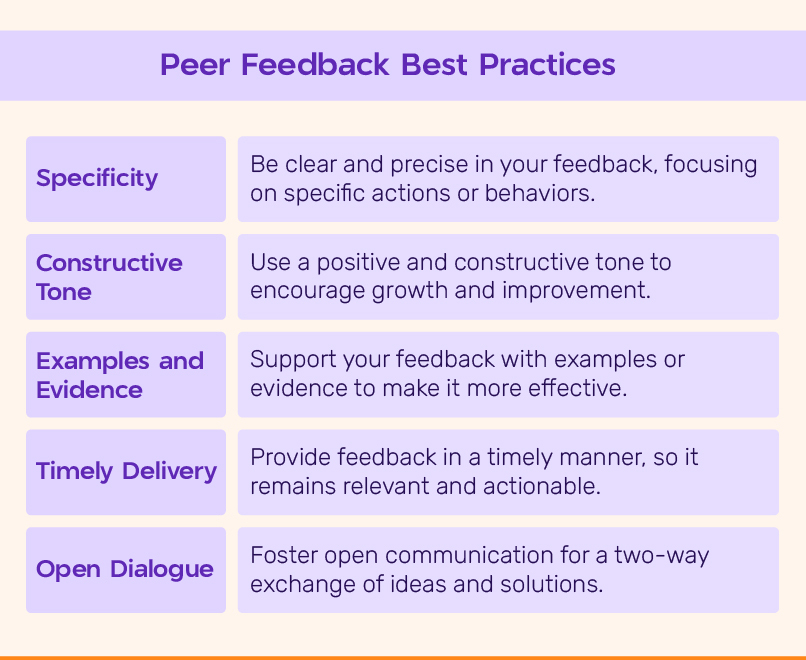
Group discussions and peer feedback on role-playing sessions are valuable components of active listening skill development. These discussions and feedback sessions provide participants with an opportunity to reflect on their performance, learn from their peers, and refine their active listening skills. Here’s a structured approach to conducting group discussions and peer feedback on role-playing sessions:
Group Discussion Format:
-
Facilitator: Assign a facilitator to guide the group discussion. The facilitator’s role is to ensure that the discussion remains focused and productive.
-
Participants: Include all individuals who participated in the role-playing exercises. This can be a small group or a larger team, depending on the context.
-
Discussion Guidelines: Set clear guidelines for the group discussion to create a safe and constructive environment. Emphasize respect, active listening during the discussion, and the importance of providing constructive feedback.
-
Structure: The discussion can follow a structured format with specific topics or questions to address. Here’s a suggested structure:
a. Individual Reflection: Begin by allowing each participant to share their own reflections on their role-playing experience. They can discuss what went well, challenges they faced, and what they learned.
b. Peer Feedback: Participants take turns providing feedback to their peers. Each person should have the opportunity to give and receive feedback. Feedback should focus on active listening skills and specific observations.
c. Group Reflection: Open the floor for a group discussion where participants can collectively discuss common themes, challenges, and insights from the role-playing exercises.
d. Actionable Takeaways: Conclude the discussion by asking participants to identify actionable takeaways. What specific strategies or techniques can they apply to improve their active listening skills in real-life situations?
Peer Feedback Guidelines:
When providing peer feedback on role-playing sessions, participants should follow these guidelines to ensure that the feedback is constructive and helpful:
-
Be Specific: Provide specific examples from the role-playing session to illustrate points. For example, “I noticed that during the conflict resolution exercise, you used reflective listening effectively when you said…”
-
Focus on Observations: Base feedback on observations rather than assumptions. Describe what you saw or heard, not what you think the person was thinking or feeling.
-
Highlight Strengths: Acknowledge and highlight the participant’s strengths and effective active listening behaviors. Positive reinforcement can be motivating.
-
Suggest Areas for Improvement: Offer suggestions for improvement and growth. Use “I” statements to express your observations and recommendations. For example, “I think you could enhance your active listening by…”
-
Maintain a Positive Tone: Keep the feedback constructive and maintain a positive and supportive tone. Avoid criticism or negative language.
-
Encourage Openness: Encourage the recipient of feedback to ask clarifying questions or seek further insights. Foster a spirit of openness to promote learning.
Benefits of Group Discussions and Peer Feedback:
- Learning from Peers: Participants can learn from each other’s experiences and gain different perspectives on active listening skills.
- Self-Reflection: Individual reflection and peer feedback encourage self-awareness and self-improvement.
- Application to Real-Life Scenarios: Participants can apply the feedback and insights gained from role-playing sessions to real-life communication situations.
- Skill Enhancement: Continuous feedback and discussion lead to the refinement of active listening skills.
Continuous Improvement:
Encourage participants to take their peer feedback to heart and use it as a foundation for ongoing improvement. Repeating role-playing exercises with feedback sessions at regular intervals can help participants track their progress and further develop their active listening skills.
Incorporating group discussions and peer feedback into active listening skill development ensures that participants not only practice active listening but also receive valuable insights and guidance for improvement from their peers, ultimately enhancing their communication abilities.